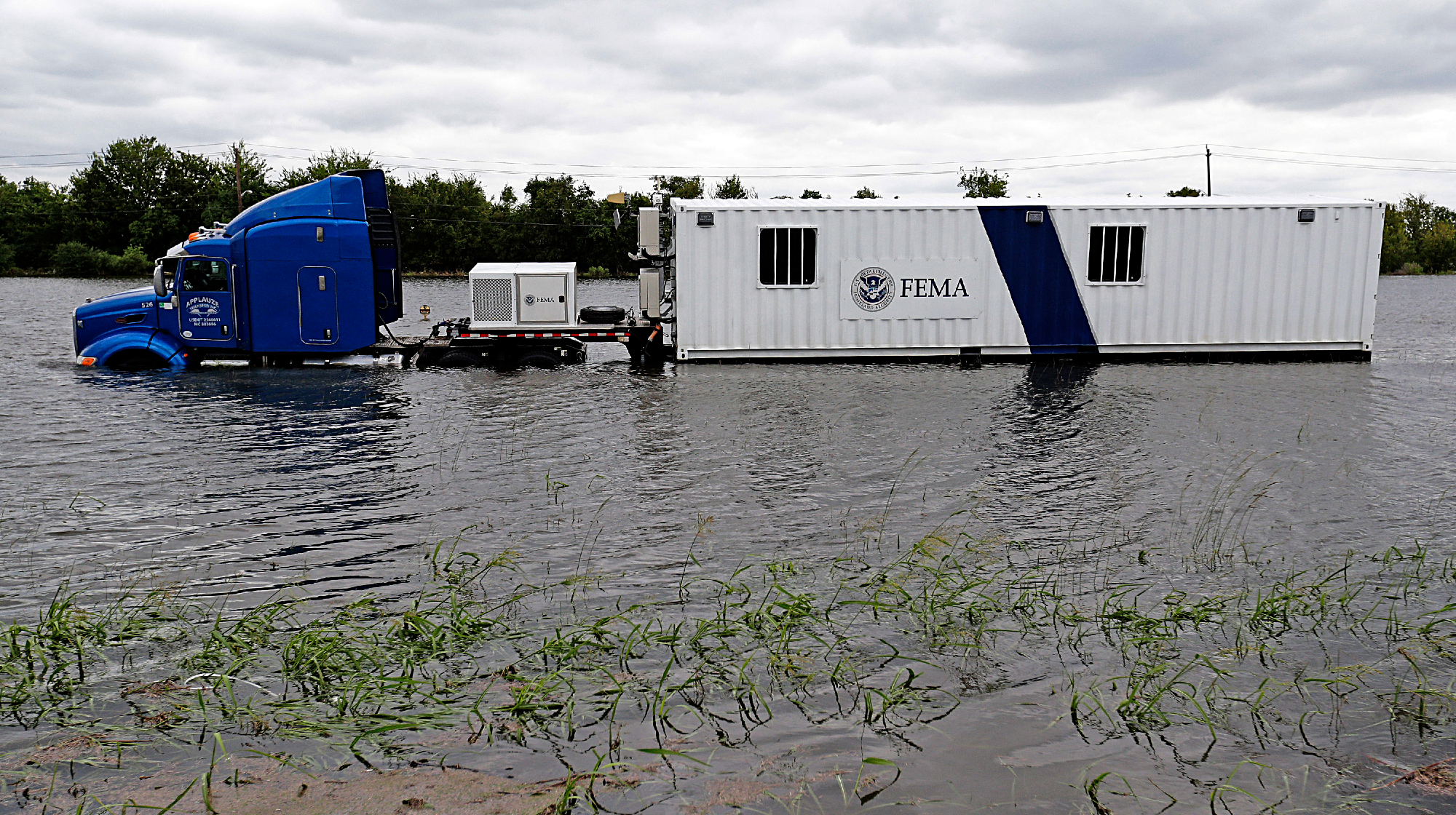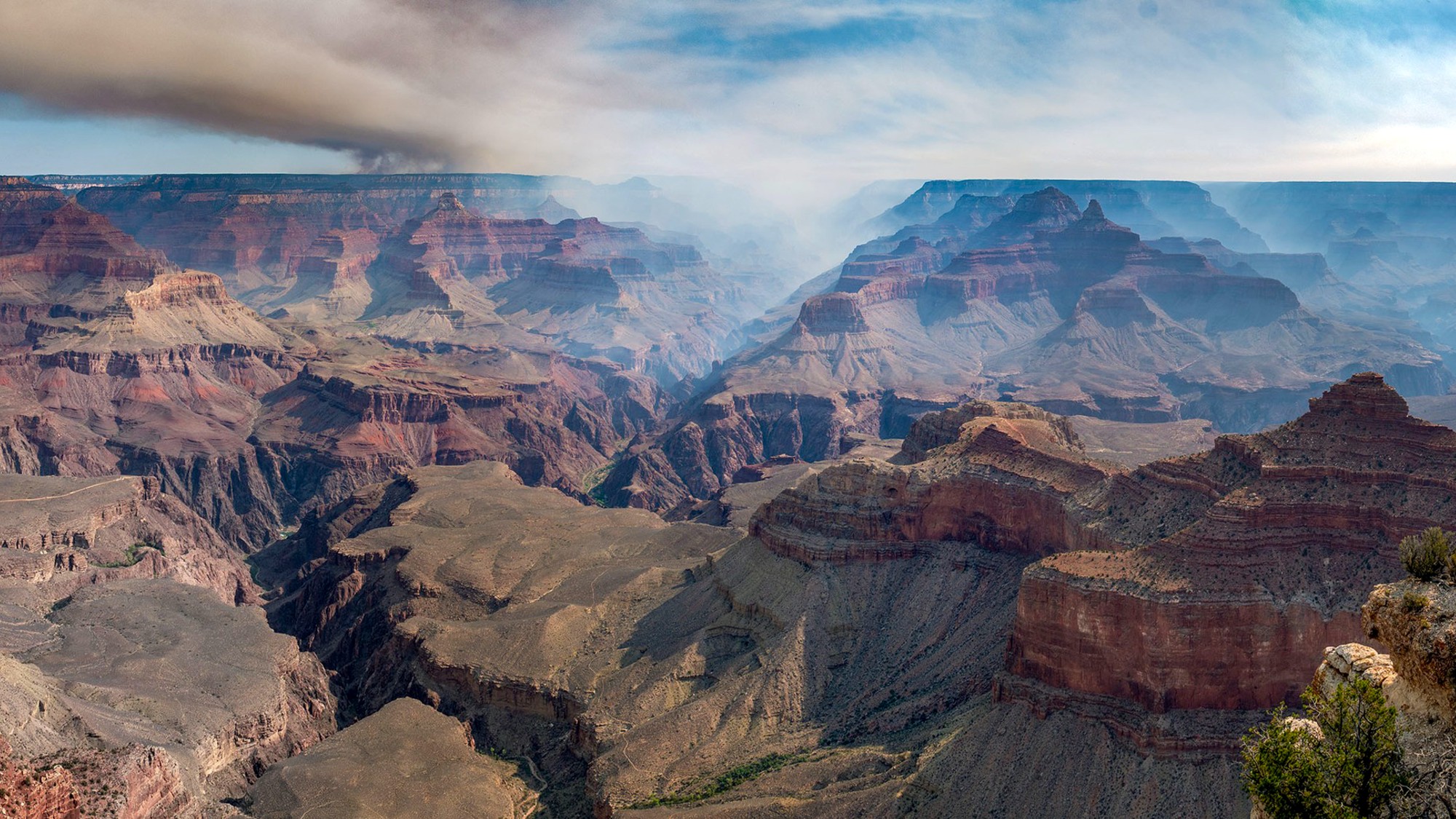Republicans have huge generational differences when it comes to climate change beliefs


A free daily email with the biggest news stories of the day – and the best features from TheWeek.com
You are now subscribed
Your newsletter sign-up was successful
Younger Republicans are more likely to believe that human activity is a primary cause of climate change, a Pew Research Center survey found.
While older GOPers — Gen X and baby boomers — are unlikely to say that climate change is having an effect on the U.S., and are likely to support the expanded use of fossil fuels, their younger counterparts largely disagree.
Thirty-six percent of Republican millennials say the Earth is warming "mostly due to human activity," compared to 18 percent of Republicans who are baby boomer-age or older. By contrast, conservative millennials — born between 1981 and 1996 — mostly believe that the government is doing too little to protect the environment. Between 41 and 60 percent of younger Republicans would prefer more protections for air quality, animals, and bodies of water, while just between 28 and 34 percent of older Republicans want more protections.
The Week
Escape your echo chamber. Get the facts behind the news, plus analysis from multiple perspectives.

Sign up for The Week's Free Newsletters
From our morning news briefing to a weekly Good News Newsletter, get the best of The Week delivered directly to your inbox.
From our morning news briefing to a weekly Good News Newsletter, get the best of The Week delivered directly to your inbox.
Older Republicans also overwhelmingly favor increased coal mining and hydraulic fracturing, commonly known as fracking. Three-quarters of baby boomer Republicans say they'd like more offshore oil and gas drilling, while only 44 percent of millennial Republicans agreed.
The survey found that generational differences were negligible among Democrats, who largely agreed that more should be done to protect the environment and favored fewer fossil fuel energy sources.
The Pew Research Center survey was conducted over the phone between March 27 and April 9, among 2,541 randomly selected adults nationwide. It has a margin of error of 2.7 percentage points.
A free daily email with the biggest news stories of the day – and the best features from TheWeek.com
Summer Meza has worked at The Week since 2018, serving as a staff writer, a news writer and currently the deputy editor. As a proud news generalist, she edits everything from political punditry and science news to personal finance advice and film reviews. Summer has previously written for Newsweek and the Seattle Post-Intelligencer, covering national politics, transportation and the cannabis industry.
-
 6 of the world’s most accessible destinations
6 of the world’s most accessible destinationsThe Week Recommends Experience all of Berlin, Singapore and Sydney
-
 How the FCC’s ‘equal time’ rule works
How the FCC’s ‘equal time’ rule worksIn the Spotlight The law is at the heart of the Colbert-CBS conflict
-
 What is the endgame in the DHS shutdown?
What is the endgame in the DHS shutdown?Today’s Big Question Democrats want to rein in ICE’s immigration crackdown
-
 Death toll from Southeast Asia storms tops 1,000
Death toll from Southeast Asia storms tops 1,000speed read Catastrophic floods and landslides have struck Sri Lanka, Indonesia, Thailand and Malaysia
-
 Hurricane Melissa slams Jamaica as Category 5 storm
Hurricane Melissa slams Jamaica as Category 5 stormSpeed Read The year’s most powerful storm is also expected to be the strongest ever recorded in Jamaica
-
 Renewables top coal as Trump seeks reversal
Renewables top coal as Trump seeks reversalSpeed Read For the first time, renewable energy sources generated more power than coal, said a new report
-
 China vows first emissions cut, sidelining US
China vows first emissions cut, sidelining USSpeed Read The US, the world’s No. 2 emitter, did not attend the New York summit
-
 At least 800 dead in Afghanistan earthquake
At least 800 dead in Afghanistan earthquakespeed read A magnitude 6.0 earthquake hit a mountainous region of eastern Afghanistan
-
 Massive earthquake sends tsunami across Pacific
Massive earthquake sends tsunami across PacificSpeed Read Hundreds of thousands of people in Japan and Hawaii were told to evacuate to higher ground
-
 FEMA Urban Search and Rescue chief resigns
FEMA Urban Search and Rescue chief resignsSpeed Read Ken Pagurek has left the organization, citing 'chaos'
-
 Wildfires destroy historic Grand Canyon lodge
Wildfires destroy historic Grand Canyon lodgeSpeed Read Dozens of structures on the North Rim have succumbed to the Dragon Bravo Fire
